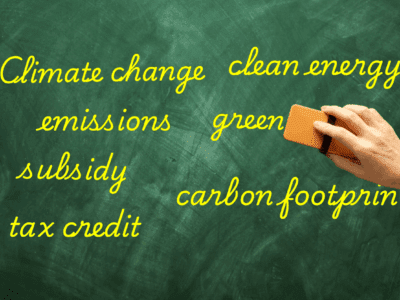Waste Not, Want Not
In trying to catch up on my reading, I discovered that the August 10 issue of the journal Science has a special section on “working with waste.” The theme is the ability of waste to contribute to society as a form of energy or raw materials:
[T]rash is often treasure— a feedstock that cannot be overlooked as an expanding world population tries to use resources more efficiently and reduce the strain that our consumption places on natural systems. Those heaps of crop leftovers and yard clippings, for instance, can offset petroleum as a source of the commodity chemicals used to make fuels, medicines, and cosmetics, if systems are in place to collect and distribute them. Plastics and metals can be recycled multiple times. One of our newest waste concerns, the carbon dioxide gas produced by burning fossil fuels, could have value if captured and used creatively. Even the wastewater we generate can be transformed into a source of energy and clean water, and water treatment cost-effectiveness is on the rise.
The articles deal with wastewater reuse, using waste in microbial fuel cells, metal recycling, polymer recycling, and reuse of mine tailings.
I’m not sure why, but I particularly got a kick out of this photo showing the recycling of oil booms from the BP spill:

Reader Comments
2 Replies to “Waste Not, Want Not”
Comments are closed.







Nice photo! For sustainable jobs in the environment check out http://www.envirocruit.com
Nice photo! For sustainable jobs in the environment check out http://www.envirocruit.com